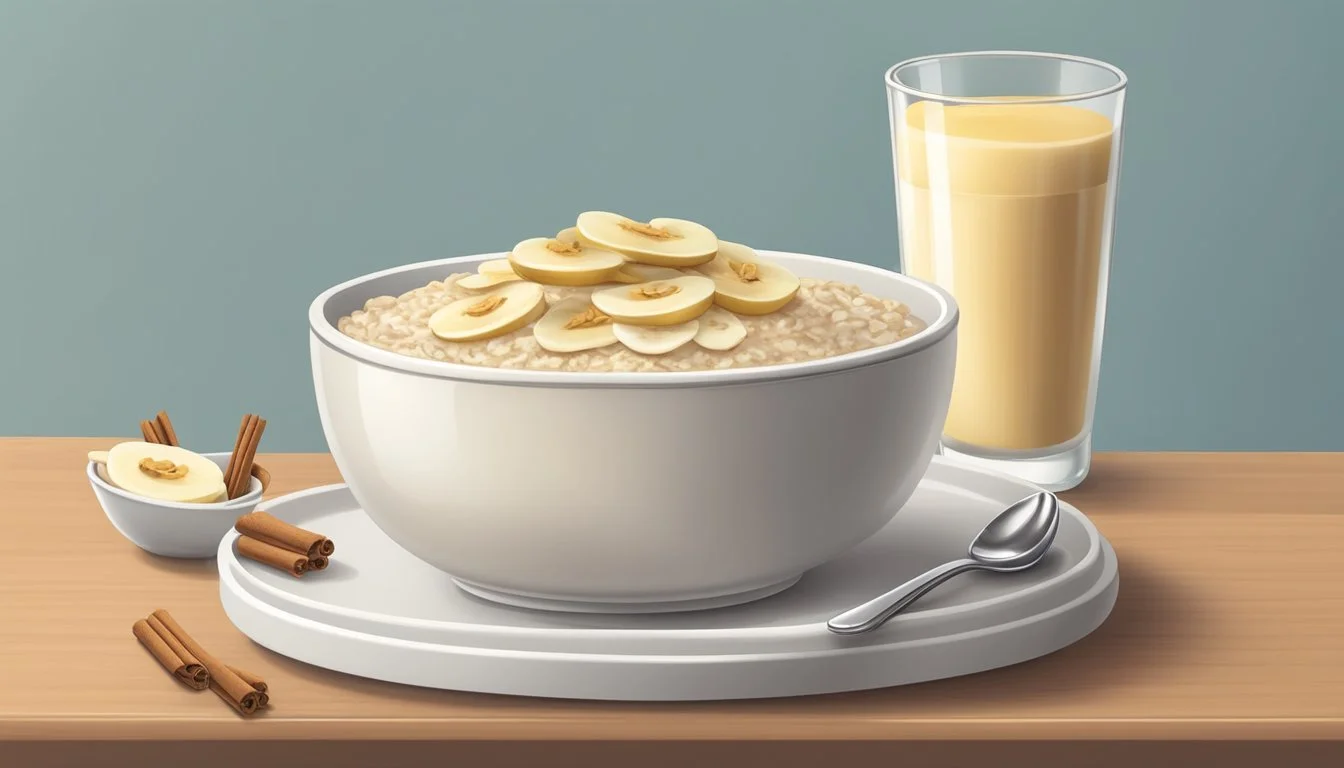Sleep-Friendly Foods to Help Your 1-Year-Old Rest Better Through the Night
Getting a one-year-old to sleep through the night can often be challenging for many parents. Sleep is crucial for a child's overall development and health, and certain foods can significantly contribute to a better night's rest. Incorporating the right foods into a child's evening routine can naturally promote relaxation and sleep.
Many foods are known to contain sleep-enhancing nutrients that can help toddlers wind down and prepare for bedtime. Understanding which foods can aid in sleep can make a substantial difference in a child’s nightly routine and overall well-being.
1) Banana
Bananas are an excellent bedtime snack for one-year-olds to promote better sleep. They contain high levels of melatonin, a hormone that helps regulate the sleep-wake cycle.
In addition to melatonin, bananas are rich in tryptophan. Tryptophan is an amino acid that serves as a precursor to serotonin and melatonin, which are essential for sleep.
Providing a banana before bed can help relax a child, making it easier for them to fall asleep. The natural sugars in bananas also provide a gentle energy source without causing spikes in blood sugar.
Bananas are easy to prepare and can be served in various forms, such as mashed or sliced. Their soft texture makes them perfect for young children who are still developing their chewing skills.
By incorporating bananas into a bedtime routine, parents can offer a healthy and effective way to support their child's sleep habits.
The Role of Nutrition in Toddler Sleep
Nutrition can significantly influence a toddler's ability to sleep through the night. Key nutrients play a role in promoting better sleep, and understanding sleep cycles aids in addressing dietary needs.
Understanding Sleep Cycles in 1-Year-Olds
A 1-year-old typically experiences multiple sleep cycles throughout the night. These include light sleep, deep sleep, and REM (rapid eye movement) sleep. Each cycle is important for different aspects of growth and development.
During REM sleep, the brain processes new information, which is crucial for cognitive development. Deep sleep aids in physical growth and healing. Light sleep acts as a transition phase between these stages.
Disruptions in these cycles can lead to insufficient sleep, which might be influenced by diet. Poor nutrition can cause irregular sleeping patterns, making it harder for toddlers to reach deep and REM sleep stages consistently.
Key Nutrients for Sleep Promotion
Calcium helps relax muscles and supports deeper sleep stages. Dairy products like milk and cheese, leafy green vegetables, and fortified cereals are good sources.
Vitamin C reduces inflammation and promotes relaxation. It can be found in citrus fruits, berries, and bell peppers.
Iron supports healthy brain development and prevents issues like restless leg syndrome, which can disrupt sleep. Rich sources include lean meats, beans, and fortified cereals.
Healthy fats are essential for brain development and maintaining overall health. Full-fat dairy products, avocados, and nut butters are beneficial.
Incorporating these nutrients into a toddler's diet can sustain their sleep cycles. Scheduling regular meals with these elements ensures they receive continuous support for healthy sleep.
Specific Foods to Consider
Certain foods can help a one-year-old sleep better by boosting melatonin levels and providing nutrients that support sleep. Here are some key options to consider:
Foods Rich in Tryptophan
Tryptophan is an amino acid that helps produce melatonin and serotonin, which are crucial for regulating sleep. Turkey and chicken are excellent sources of tryptophan and can be included in a toddler's dinner. Other protein-rich foods like eggs and tofu also contain significant amounts of tryptophan.
Yogurt and cheese are not only rich in tryptophan but also provide calcium, another nutrient that supports sleep. Nuts and seeds, such as almonds and chia seeds, offer both tryptophan and magnesium, a mineral that relaxes muscles and aids in better sleep.
Complex Carbohydrates and their Impact
Complex carbohydrates can increase the availability of tryptophan in the brain. Whole grains such as oatmeal and brown rice are ideal choices. Including these foods in dinner can help a toddler feel fuller longer, promoting a restful sleep.
Sweet potatoes are another great source of complex carbohydrates and provide potassium, which aids in muscle relaxation. Barley and quinoa are other grains rich in complex carbohydrates and can be easily added to meals.
Pairing complex carbohydrates with proteins rich in tryptophan can enhance their sleep-inducing properties. For instance, whole grain toast with almond butter or oatmeal with yogurt makes for a balanced evening meal.
Creating a Sleep-Friendly Bedtime Routine
A sleep-friendly bedtime routine for a 1-year-old focuses on careful timing of meals and snacks and maintaining proper hydration without interfering with sleep. Below, explore these critical aspects in detail.
Timing of Meals and Snacks
Timing meals and snacks correctly can significantly impact a child's sleep quality. Avoid large meals close to bedtime, as a full stomach can make it difficult to fall asleep. Provide dinner about 2-3 hours before bedtime to allow for proper digestion.
Incorporate a small bedtime snack about 30 minutes to an hour before bed. Good options include a banana, whole-grain crackers, or a small bowl of cereal with milk. Avoid sugary snacks and caffeine, as these can cause restlessness.
Balancing Hydration Before Bedtime
Proper hydration is essential, but excessive liquids close to bedtime can lead to multiple night awakenings. Limit fluids in the last 1-2 hours before bedtime. Offer sips of water if the child is thirsty but avoid large servings of milk or juice.
Establishing a consistent bedtime routine that includes a final bathroom trip can help reduce the need for overnight wake-ups. This can make fallen asleep smoother and contribute to a restful night's sleep for the 1-year-old.




